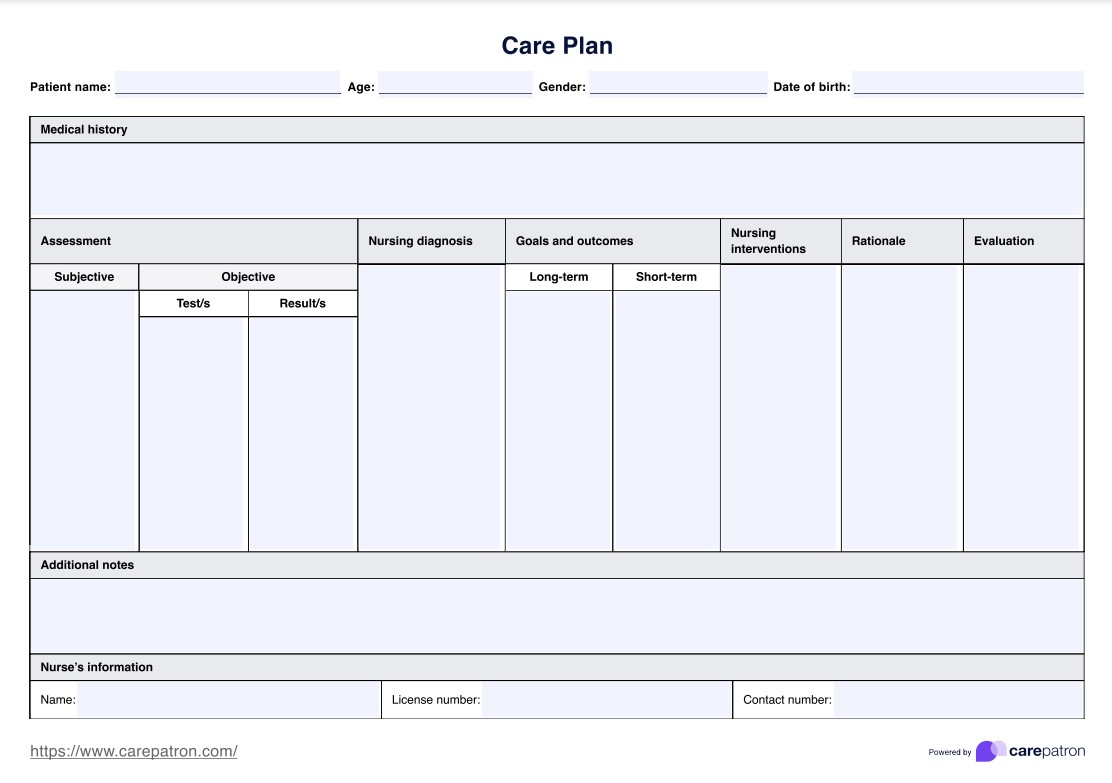Our Care Plan Template is designed for both working nurses and those in nursing programs or nursing school. It’s especially useful for documenting student nursing care plans, practicing assessment and intervention skills, and learning how to align patient care with clinical reasoning. Professionals can also utilize it to standardize documentation and ensure continuity of care tailored to each patient’s specific needs.

Care Plan
Use our free care plan template and examples to organize effective care and gain numerous benefits for both patients and providers.
Care Plan Template
Commonly asked questions
Care planning promotes consistent, holistic, and patient-centered care. Whether created by student nurses during training or by registered nurses in clinical practice, well-written care plans ensure that every patient’s specific needs are addressed. They help track progress toward SMART goals, enhance collaboration among the care team, and ultimately lead to better patient health outcomes.
To get started, download the free Care Plan Template and fill out each section according to your patient’s specific needs. Begin with the assessment phase, identify nursing diagnoses, and establish SMART goals that guide care. The template is structured to support both student nursing care plans and professional documentation, making it a practical tool for working nurses to organize interventions and monitor outcomes efficiently.
EHR and practice management software
Get started for free
*No credit card required
Free
$0/usd
Unlimited clients
Telehealth
1GB of storage
Client portal text
Automated billing and online payments











